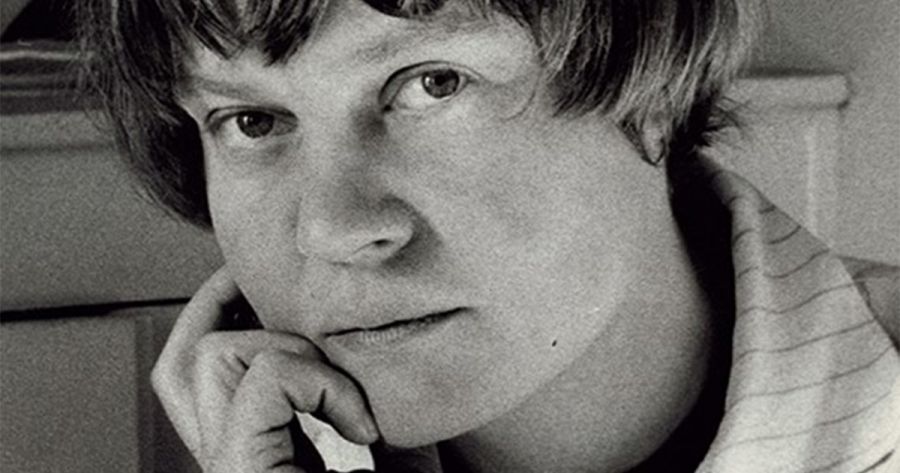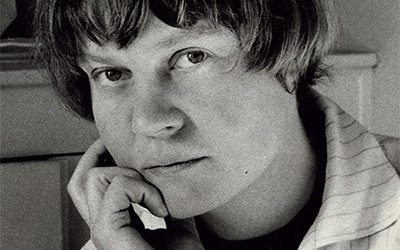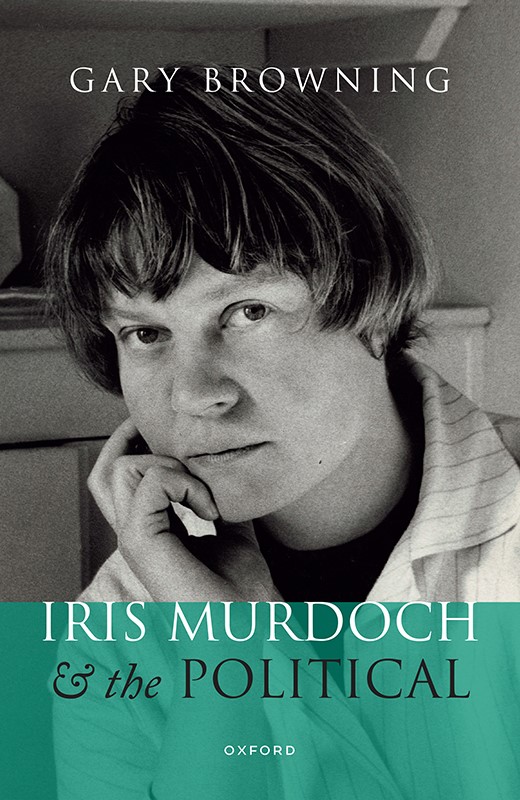
- Free Article: No
- Contents Category: Literary Studies
- Review Article: Yes
- Article Title: Mind on the border
- Article Subtitle: Chronicling Iris Murdoch’s complexity
- Online Only: No
- Custom Highlight Text:
In a letter to her friend Raymond Queneau in 1946, the twenty-seven-year-old Iris Murdoch asked, ‘Can I really exploit the advantages (instead of suffering the disadvantages) of having a mind on the border of philosophy, literature and politics?’ Well known as a philosopher and a novelist, Murdoch is less likely to be thought of as a political writer, though Gary Browning claims it to be the ‘simple truth’.
- Featured Image (400px * 250px):

- Alt Tag (Featured Image): Gillian Dooley reviews ‘Iris Murdoch and the Political’ by Gary Browning
- Book 1 Title: Iris Murdoch and the Political
- Book 1 Biblio: Oxford University Press, £76 hb, 247 pp
- Book 1 Cover Small (400 x 600):

- Book 1 Cover (800 x 1200):

- Book 1 Readings Link: https://www.readings.com.au/product/9780192844989/iris-murdoch-and-the-political--prof-gary-browning--2024--9780192844989#rac:jokjjzr6ly9m
Browning has mined all these sources, published and unpublished, to chronicle Murdoch’s complex and continually evolving attitudes to politics throughout her life, from her early radicalism to her later disenchantment with Labour politicians on the one hand, and with any form of revolutionary thinking on the other.
Murdoch attended a progressive school, Badminton College in Bristol, where the students were encouraged to espouse international causes. She flourished there. Browning has discovered several essays that she wrote for the school magazine on topics like ‘How I Would Govern the Country’ and the merits of ‘Community Singing’, which have a ‘political, moral flavour’. She was idealistic and committed to the League of Nations as a force for peace. While she was an undergraduate at Somerville College in Oxford, World War II began and everything changed.
After graduating from Oxford she worked in the Civil Service, chafing under the restrictions of her situation, desperate to go abroad and do something positive for the war effort. ‘Sometimes I think it’s quite bloody being a woman,’ she wrote to a friend. Eventually, she escaped from Whitehall and joined the United Nations Relief and Rehabilitation Administration. She travelled to Europe to help refugees and displaced people, and in the process developed a lifelong sympathy for those in desperate situations. ‘God!’ she wrote, ‘So few people in this great relief organisation can make any imaginative effort to understand what the displaced person problem really is.’ This imaginative effort was a lifelong undertaking for her, as Browning shows. Her many fictional displaced persons are not angelic sufferers, but individual human beings who have been forced to make impossible decisions and have been damaged and scarred in different ways by the trauma they have suffered.
It is only just emerging how accomplished a poet Murdoch was. The Iris Murdoch Archive at Kingston University holds manuscripts of many unpublished poems, written throughout her lifetime, some of them directly political. For example, Browning quotes a devastating poem from 1942 titled ‘People in Silence’, which demonstrates her deep understanding of the appalling predicament of those suffering under oppressive regimes.
After the war, both fascinated and repelled by the French existentialists, Murdoch engaged with the politics of their works, as well as with their literature and philosophy. Her book Sartre: Romantic Rationalist (1953) was one of the first critical studies of this major figure. Increasingly disenchanted with Soviet communism, she tried to suggest solutions to its manifold problems. Browning discusses at length her ‘most celebrated contribution to political theory’, ‘The House of Theory’ (1958), an essay which, as he writes, asks ‘philosophically inspired questions’ of socialism.
Browning goes on to explore ‘the vitality and many-sidedness of her politics, her mapping of historical experience, and the rich suggestiveness of her theorizing’ throughout her career. Particularly fruitful sources for his discussion include novels such as The Bell (1958), set in a lay spiritual community; The Red and the Green (1965), her one historical novel, which concerns the 1916 Easter Rebellion in Dublin; and the late novel The Book and the Brotherhood (1987), in which, as Browning says, ‘it is as if the old Murdoch is talking to her younger self’.
Browning also discusses in some detail her plays, which, while not promoting a particular ideology or point of view, all have distinct political overtones. They include not only works written for the stage but a radio play, The One Alone, with music by Gary Carpenter, which imaginatively charts the predicament of a political prisoner.
And there is also a link with Australia, through her correspondence with the radical philosopher Brian Medlin, a friend since his days in Oxford in the early 1960s. Their letters, written over twenty years, along with the full text of Murdoch’s review of Medlin’s book Human Nature, Human Survival, were published in a book I co-edited with the late Graham Nerlich in 2014. Its title, Never Mind the Bourgeoisie, comes from a Murdoch line that brought to a harmonious and affectionate close a debate that had been running through their letters: ‘Never mind about the bourgeoisie, my heart is with you.’
This sentiment is typical: her politics are, in Gary Browning’s words, ‘to be admired for the imaginative ways in which she responds to political events and cultural shifts’. Browning makes a convincing case for Murdoch’s abiding interest in politics, not as dogma but as a continually evolving response to events and issues as they arose – questions not of ideology but of relations between human beings.


Comments powered by CComment